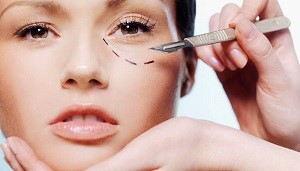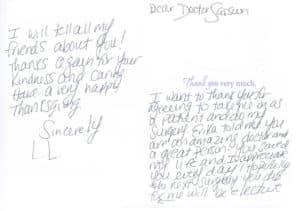What is Too Much Plastic Surgery
- Posted on: Dec 7 2016
Plastic surgery has improved the lives of millions. For babies born with cleft palates or people disfigured in accidents, reconstructive plastic surgery allows them to maintain a normal appearance and reduces or eliminates people staring at them. For people who aren’t conventionally attractive, plastic surgery gives them a more pleasing appearance. My staff and I are committed to providing compassionate and attentive care to each one of our patients. Our main focus is to improve our patients’ quality of life through a tailored and personalized treatment plan. There are those, however, who expect more from plastic surgery than it can possibly give them and they can become the equivalent of plastic surgery addicts.
Facing Face Facts
Plastic surgery can improve your appearance. Seeing the final results in the mirror for the first time has been an emotionally rewarding experience for many of our facelift patients. For many, it is not just about looking younger, but also feeling confident and happy in their own skin again. A person may experience great results with an initial facelift, for example, but subsequent facelifts through the years are unlikely to have the same effect. That first facelift takes off the years, and the person looks natural and relaxed. Subsequent facelifts, with additional skin tightening, are likely to make the individual look less natural. In a worst case scenario, the person’s appearance is distorted because the skin is too tight they can’t move their facial muscles properly. Plastic surgery is supposed to make the patient look better. Keep your expectations reasonable and trust your doctor’s expertise.
Body Dysmorphic Disorder
You probably know someone suffering from Body Dysmorphic Disorder, or BDD. These are people convinced they are horribly unattractive, while they are perfectly normal in appearance and maybe even beautiful. They can obsess over some tiny flaw in their looks – real or imagined – that no one else seems to notice. They may believe they are overweight when actually slender, and end up with conditions like anorexia.
These folks are not good candidates for plastic surgery, but they should receive counseling, since BDD is an emotional/mental disorder. A plastic surgeon encountering a potential client who is obviously imagining flaws must take into consideration the patient’s mental state. A minor procedure – some Botox or other injectable – is one thing. Major surgery is another. A person with true BDD isn’t going to feel better after a cosmetic procedure. They will merely fixate on some other area of their appearance or blame the surgeon for making matters worse.
At some point, the risks and results outweigh the benefits. It’s vital that plastic surgeons are honest with patients, and even more important, that patients are honest with themselves. People constantly undergoing elective plastic surgery may want to spend some time with a therapist.
If you’re considering facial surgery, it’s especially important that you choose a skilled and board-certified surgeon. If you or someone you know would like to learn more about plastic surgery, please call 516-487-5017 to schedule a consultation or find out more about our services with Dr. Sasson today.
Posted in: Plastic Surgery





